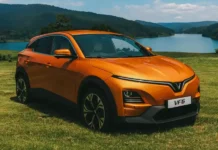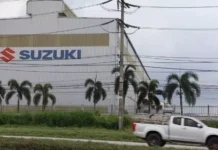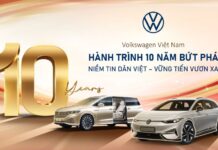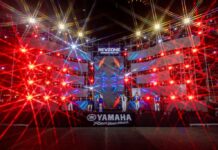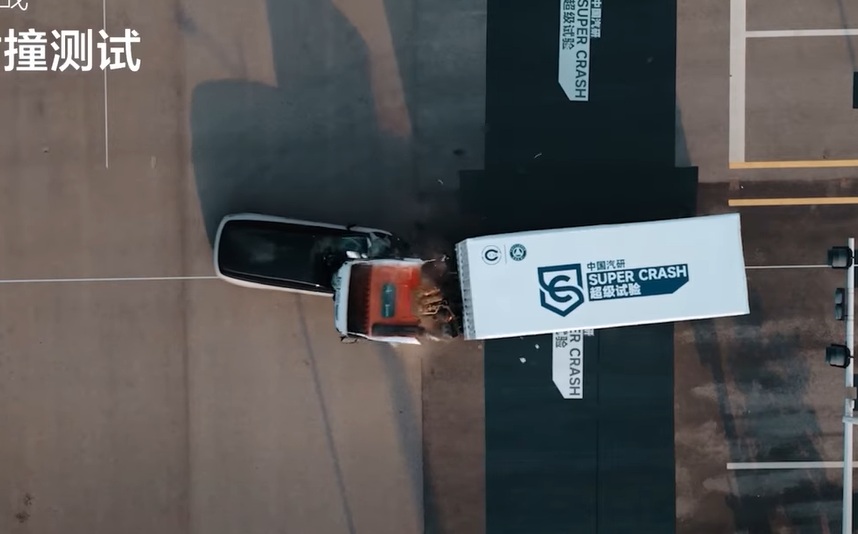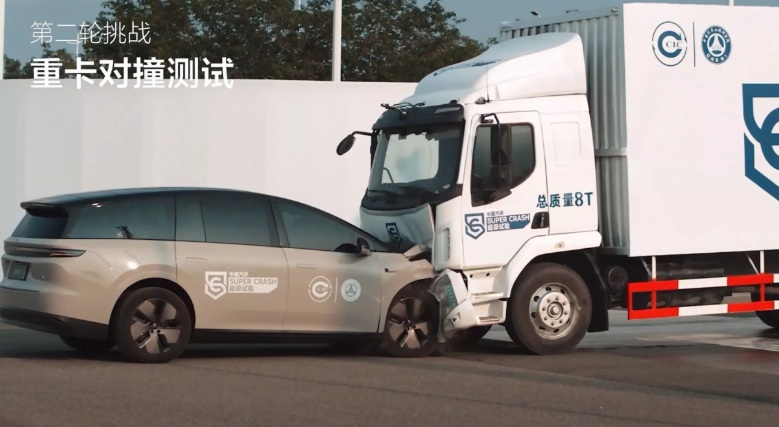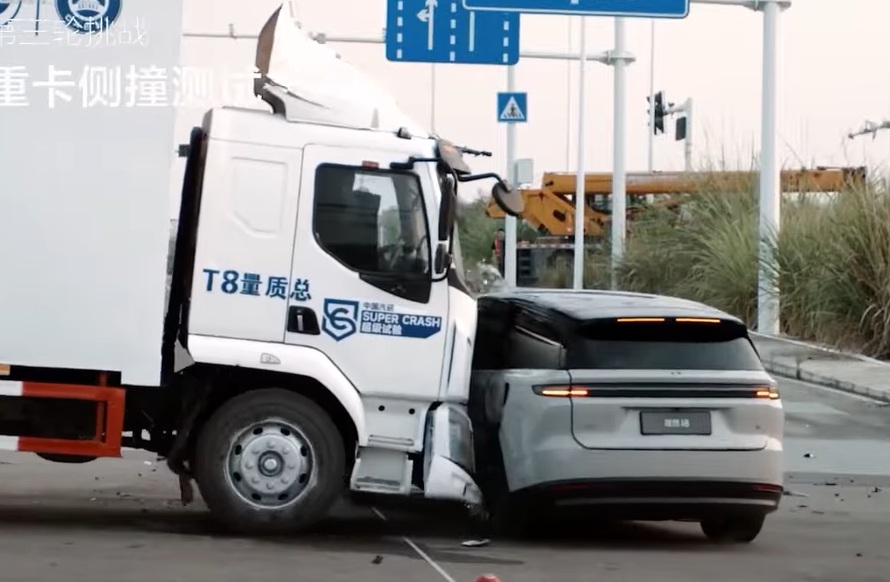The recently released Li Auto electric car crash test video has garnered significant attention in China.
In the video, the Li Auto i8 electric SUV (weighing approximately 2.6 tons) is shown colliding head-on with an 8-ton Chenglong truck traveling in the opposite direction. The recorded collision speed was 60 km/h for the electric car and 40 km/h for the truck.
Despite the significant weight difference, Li Auto’s new SUV demonstrated impressive strength. Its frame remained largely intact, the airbags deployed successfully, the doors opened automatically post-collision, and there was no fire or explosion, even though the battery sustained heavy scratches.
The most controversial moment was when the Chenglong truck, despite being three times heavier than the electric car, was flipped over. Its cabin detached from the chassis, and the wheels lifted off the ground in the blink of an eye.
Soon after the video went viral on social media, Dongfeng Liuzhou Motor, the parent company of the Chenglong brand, voiced their opposition. In a statement released on August 1st, the company argued that the test was “highly misleading,” did not reflect real-world conditions, and could potentially damage the product’s reputation.
According to the truck manufacturer, the test was not set up to simulate a typical traffic accident and showed signs of being staged for media sensationalism.
In response, Li Auto stated that the test was conducted by the China Automotive Engineering Research Institute (CAERI), an independent state-owned entity. They affirmed that the test was not intended to compare or evaluate the quality of Chenglong vehicles.
Li Auto explained that the truck was purchased from the used car market and had only been repainted, equipped with autonomous technology, and loaded to reach the 8-ton mark. They emphasized that the truck served solely as a “moving barrier” to simulate an accident scenario and had no association with any competing brand.
Subsequently, CAERI also issued a statement corroborating Li Auto’s information. The research institute clarified that this was a “non-standard” test aimed at simulating a crash under special conditions and was not meant to assess the quality of the truck or any other vehicles.
Li Auto also asserted that they do not directly compete with Dongfeng Liuzhou Motor, a manufacturer specializing in heavy-duty trucks. Additionally, they apologized for inadvertently involving the Chenglong brand in the controversy.
Dongfeng has not issued a further response as of yet. Meanwhile, the online debate rages on. Some argue that the test achieved its publicity goal, while others believe it risks misleading consumers.
A Profitable Nightmare: Chinese Auto Brands are Selling Cars at a Loss
“In a recent statement, Mr. Song Zhiping, the chairman of the China Association of Listed Companies, asserted that only two automobile manufacturers are profiting from new energy vehicles: BYD and Li Auto. This insightful comment sheds light on the exceptional performance and innovative capabilities of these two automotive powerhouses in the realm of new energy vehicles.”

